Singh the party leader in ‘most danger’ of losing his seat, pollsters say, as NDP suffers national drop in support
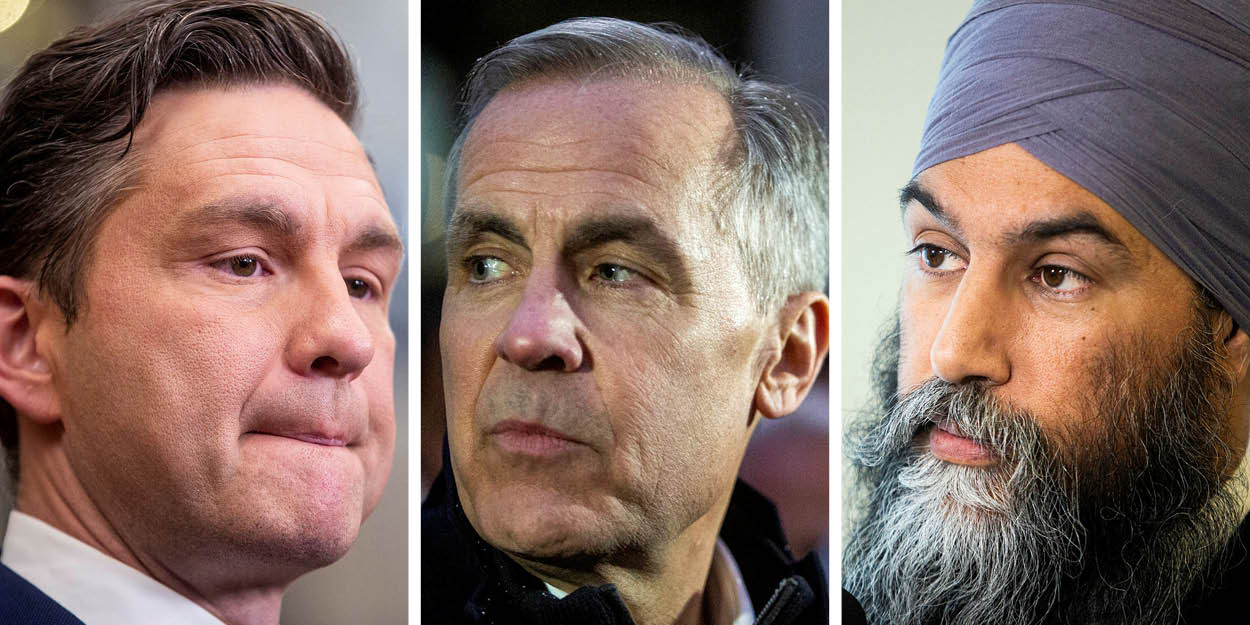
With his party down in national support, NDP Leader Jagmeet Singh faces an uphill battle to keep his seat in the newly redrawn riding of Burnaby Central, B.C., say pollsters.
Most federal party leaders are expected to hold their seats in the 2025 federal election, but not all are on equally solid ground.
Conservative Leader Pierre Poilievre has a tight grip on his riding of Carleton, Ont., while Liberal Leader Mark Carney—fighting for a seat in the Parliament for the first time—is just as strongly poised to secure Nepean, Ont.
Bloc Québécois Leader Yves-François Blanchet is sitting comfortably in Beloeil-Chambly, Que., and Green Party co-leader Elizabeth May seems safe in Saanich–Gulf Islands, B.C. However, her co-leader Jonathan Pedneault is unlikely to win in the Montreal-area Liberal stronghold of Outremont, Que. Similarly, Maxime Bernier, leader of the People’s Party, will face a challenge unseating the Conservatives in Beauce, Que., the riding he lost in the 2019 election.
While pollsters note there is very little polling looking specifically at ridings at this stage, national polling data as well as previous victory margins paint a certain picture.
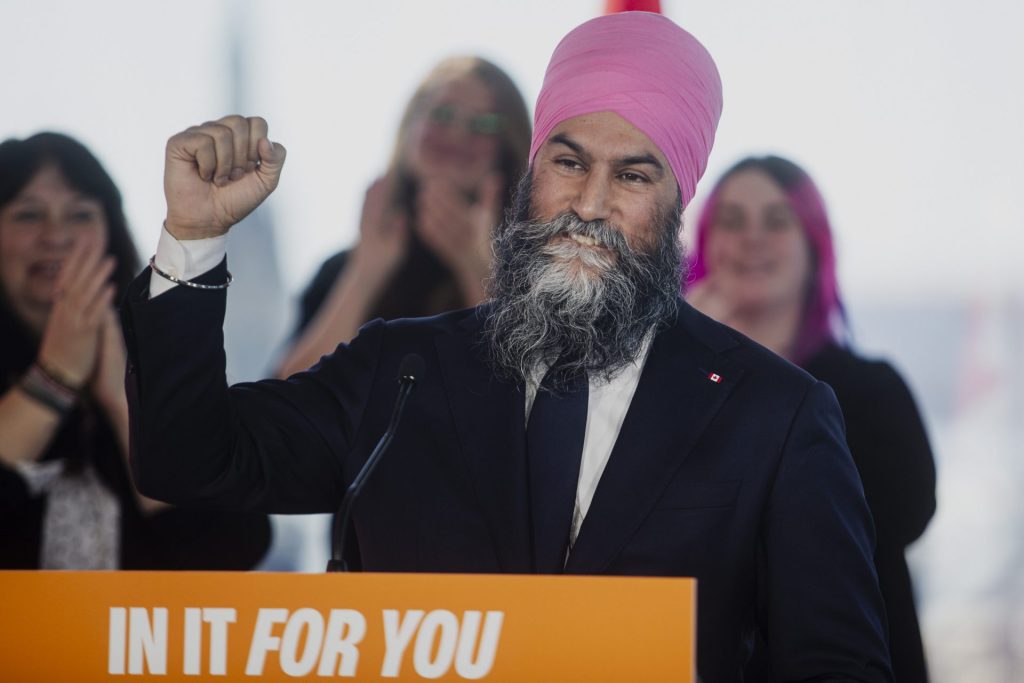
Singh faces a tight race in Burnaby Central—previously known Burnaby South prior to the boundary changes—the riding he first won in 2019. Based on a transposition of the 2021 results onto the new boundaries, Singh would have won 39.78 per cent of the vote in Burnaby Central that year, 8.53 percentage points ahead of his Liberal opponent Brea Huang Sami.
According to Andrew Enns, executive vice-president at Leger, the NDP brand is doing “very poorly” in this election. “There needs to be a fairly significant turnout for the NDP for Singh to win his seat,” Enns said.
Pollsters highlight that most party leaders typically enjoy a small bump in the polls. Even with that, Singh could lose in Burnaby, according to Quito Maggi, president of Mainstreet Research. “Singh is in the most danger,” Maggi said.
An Angus Reid poll from March 24 shows the NDP’s support at seven per cent, with half of the party’s past voters indicating an intention to vote for the Liberals if the election were held today.
Sean Simpson, senior vice-president at Ipsos, said a drop in NDP support, as well as a surge in support for Liberals who were in second place in that riding in 2021, “could be enough swing to cost Singh his seat.”
According to Simpson, “it looks like Canadians may be turning the page” when it comes to Singh, as he is seen as having been a partner to an unpopular and weakening Justin Trudeau in his last years as prime minister through the Liberal-NDP supply-and-confidence agreement.
“In the long run, that seems to have hurt the party. It looks like the progressive vote is consolidating around Carney as the person who could best defeat Poilievre,” Simpson explained.
Voters feel they might get the change they want with either Carney or Poilievre, and they will choose which version of change they prefer, Simpson argued.
“The problem is Singh doesn’t really represent change. He was part of the mechanism that kept the Liberals in power for so long,” Simpson said.
Another factor working against Singh is the ballot question of who can best stand up to U.S. President Donald Trump, according to Simpson—and only eight per cent of Canadians believe that person is Singh. “He’s not part of that equation,” Simpson said.
“This is a pocketbook election across the board. Affordability is the No. 1 issue Canadians are raising—in every riding, province, and region,” Maggi said, noting that climate change, reconciliation and social programs are low in voter priorities.
The second most important issue is Trump’s tariffs and the broader economic fallout from the trade war, which combined, make up about 85 per cent of top concerns according to Maggi, who highlighted that housing and other topics account for just slivers of the remaining 15 per cent, and they’re still economic in nature.
“So, the candidate, leader or party with the strongest economic platform will have a tremendous advantage,” Maggi said.
Carney will win in his seat despite challenges
Carney is vying for a House of Commons seat for the first time in Nepean, Ont., an Ottawa-area riding. Until recently, Nepean was held by Liberal backbencher MP Chandra Arya. Under the transposition of votes into the new riding boundaries, the Liberals would have received 45.74 per cent of the vote in 2021, more than 12 points ahead of the Conservatives.
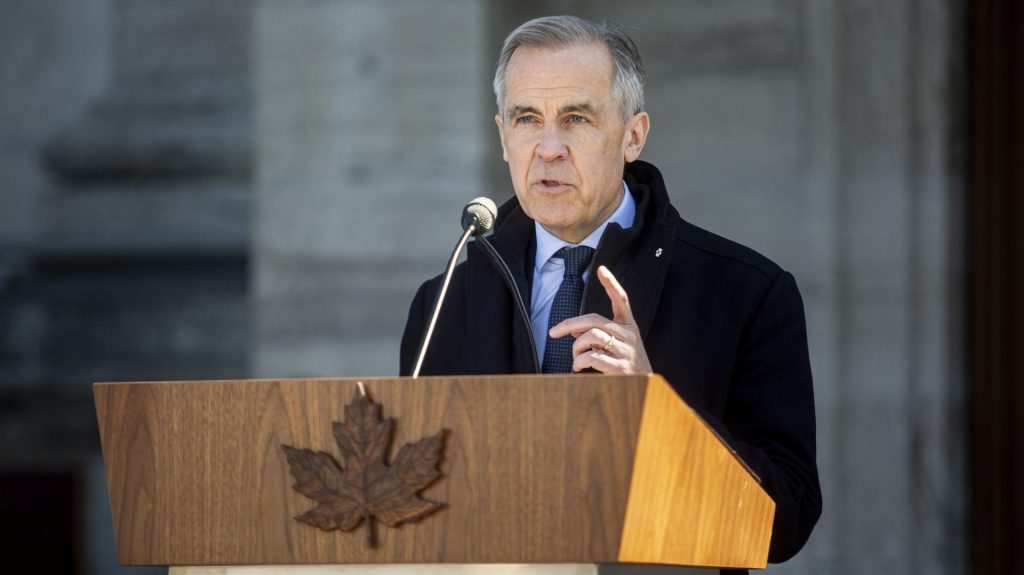
Enns said Carney is “in good shape,” as he is running in a Liberal stronghold, and his party is currently trending strongly in popular opinion nationally.
A Leger poll conducted last week indicated that the Liberals are six points ahead with 44 per cent of the vote, compared to 38 per cent for the Conservatives. Similarly, the latest Abacus Data survey shows the Liberals at 44 per cent, the Conservatives at 38 per cent, and the NDP at 11 per cent.
With no previous electoral record, Carney faces the rare challenge of leading a national campaign while trying to secure his own seat, according to Maggi, who noted that in the past, leaders have been able to establish support in their ridings before seeking the top job.
A party leader typically wouldn’t spend more than a couple of days in their riding during an election, but Carney may need to linger longer than most, Maggi argued. “This is his first time out—there’s no base for him.”
“But I suspect he’ll win quite handily,” Maggi said.
One of the important factors as to how well the party leaders do in their own ridings is the voter profile. In Nepean, for instance, there is a heavy concentration of public servants.
“So, obviously, they’ll be paying attention in terms of what Mr. Carney’s plans are,” Enns said. “He announced his big tax cut last week, but he also made pains to say he’s not cutting any programs—which will make some civil servants probably more comfortable,” Enns added.
In Poilievre’s riding of Carleton, which is next door to Nepean, it is mostly agricultural communities and a mix of small-town and service sector voters. Only a small portion of the demographic are public servants, who’d likely not support Poilievre’s push to cut the federal workforce, according to Enns.
Simpson said Carney has some “cache,” for having been a former public servant himself, and having lived in Ottawa during his time as governor of the Bank of Canada, all of which will likely be seen as net favourables within the riding of Nepean.
Maggi also argued it is surprising that Carney—who lives in the federal riding of Ottawa-Vanier-Gloucester—chose to run in Nepean, which he said is a diverse and growing constituency, with internal divisions and issues tied to different diaspora communities.
“There is some challenges to that when you’re seeking office, and that is more of an issue in Nepean than almost any other Ottawa riding,” Maggi said.
Arya effect won’t hurt Carney
Arya was blocked from running in the recent Liberal leadership race nomination, and his nomination in Nepean was revoked by the party due to alleged foreign interference concerns involving India, The Globe and Mail reported. This will likely have a small effect—if any—on Carney’s support in Nepean, according to pollsters.
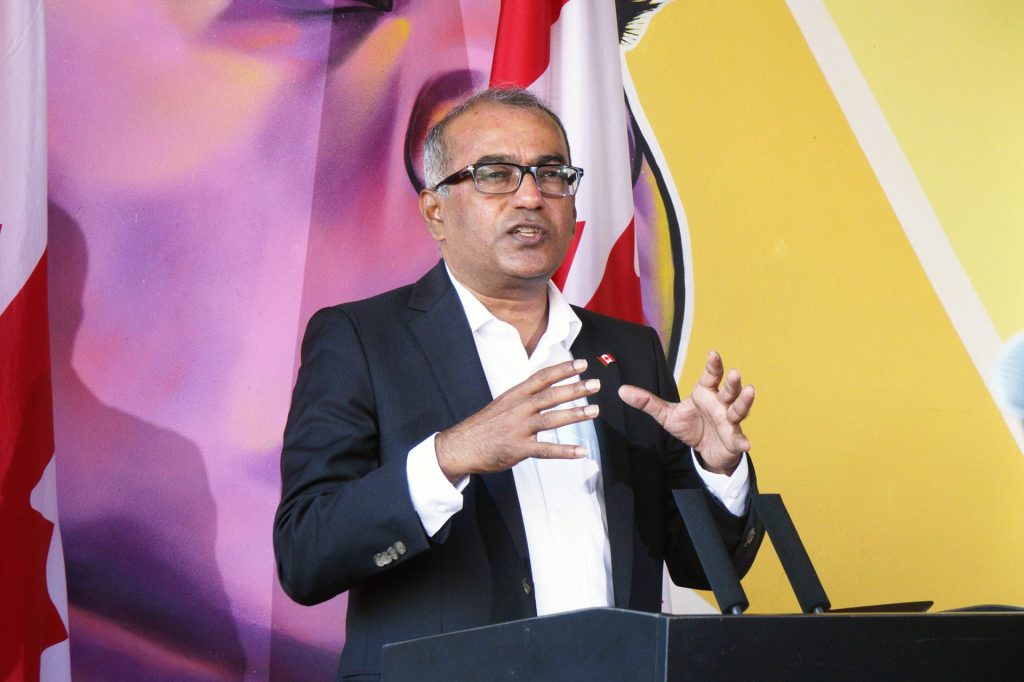
“Some of Arya’s strong supporters might be feeling put out. [But] I’d be very surprised if that actually popped up as an issue,” Enns said.
Maggi echoed that “certain groups are upset,” and said he expects to see “some impact,” though how significant of an effect this will have remains to be seen.
Liberals in Nepean are still likely to vote for Carney, according to Simpson: “Where else are you going to go? You could vote for the NDP, I suppose, but the Conservatives were in second place in Nepean, so that’s not really a compelling choice.”
Maggi: Poilievre will win his seat for an eighth time, but won’t be a ‘blowout‘
Poilievre has held the riding of Carleton since 2004. Elections Canada transposition data of the 2021 election shows the Conservatives would have won 51.86 per cent of the vote in the redrawn riding.
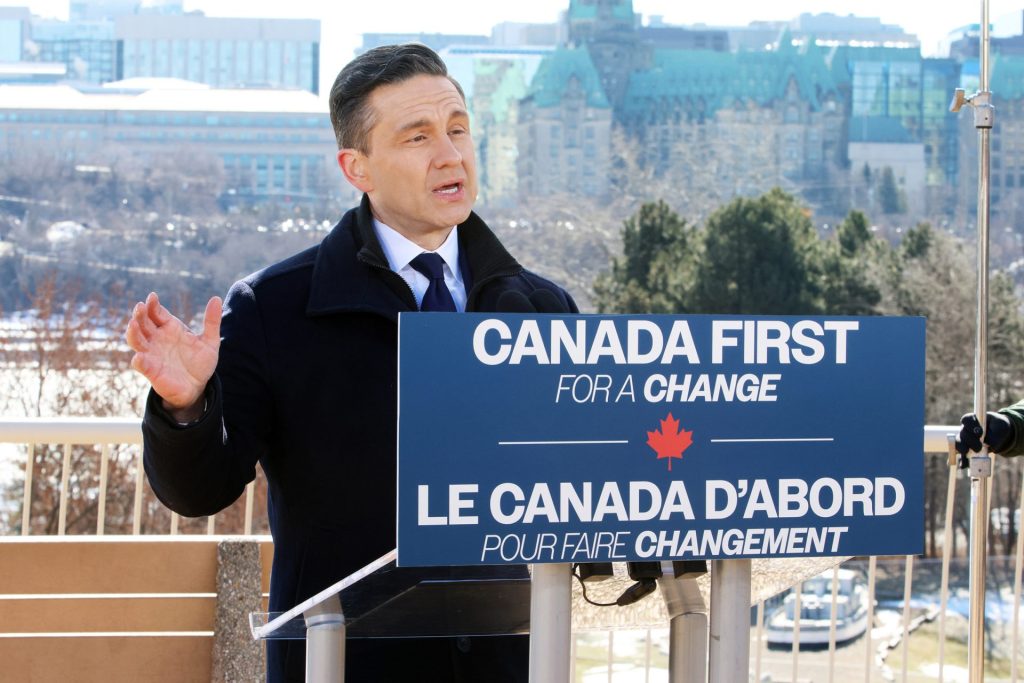
“That’s a pretty solid lead. We would have to see a fairly fundamental shift in the popular vote figures in order for him to be in jeopardy of losing his seat,” Simpson said.
Enns said he does not expect “much excitement” there, but he notes that the riding’s new boundaries—stretching from Renfrew County to Prescott–Russell—could give Poilievre a slight boost.
“What was already a strong seat for Poilievre has become much stronger,” Enns said, noting redistribution has removed a more urban area and added rural parts of Eastern Ontario that tend to vote Conservative.
Maggi said Carleton voters “like that he is a fighter, he’s been a good MP for them, and they have known him for a very, very long time.” But added that his modelling shows Poilievre’s win is not going to be “a blowout,” as some voters still hold residual anger over Poilievre’s support for the so-called “Freedom Convoy”, a weeks-long protests held in opposition to COVID-19 mandates and prime minister Justin Trudeau’s government which gridlocked downtown Ottawa in the winter of 2022.
Green’s Pedneault unlikely to win Liberal stronghold, say pollsters
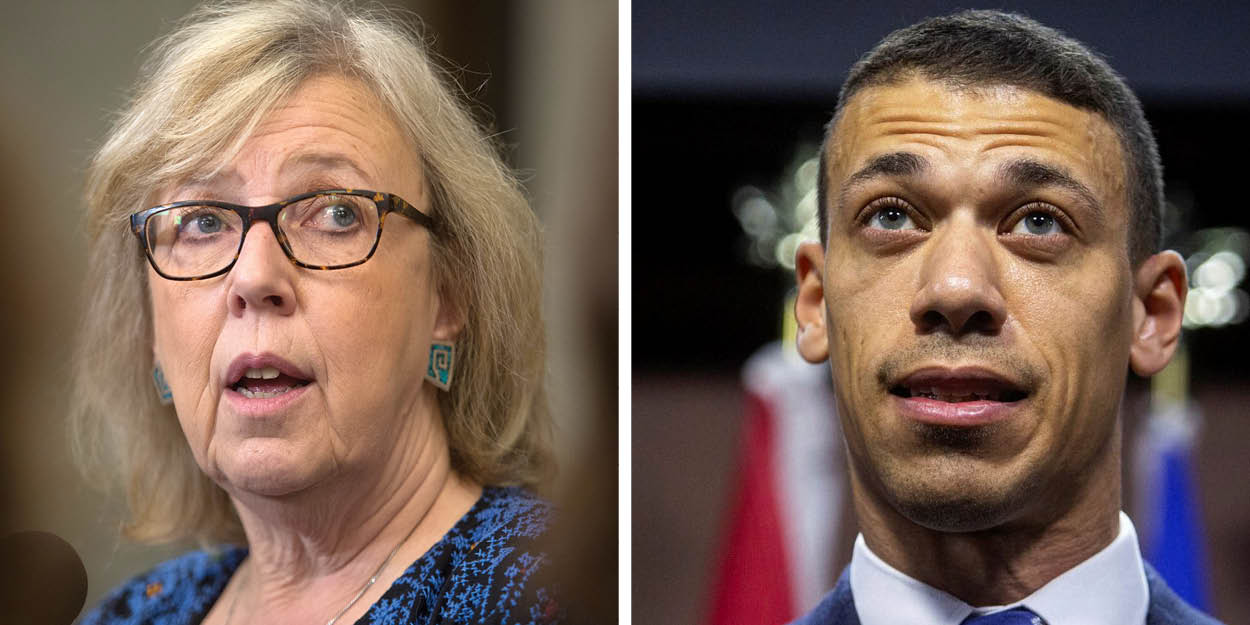
Green Party co-leader Elizabeth May has held Saanich–Gulf Islands—a British Columbia riding where agriculture and tourism are the main economic drivers—since 2011.
Meanwhile, the other Green Co-Leader Jonathan Pedneault appears to be facing an uphill battle in the riding where he is running, according to pollsters.
Pedneault is running in Outremont, a Liberal stronghold in Montreal. In 2021, Liberal MP Rachel Bendayan won the riding handily. Based on the transposition data, the Greens only got 3.12 per cent of the vote in the redrawn boundaries, putting the party in fifth position. Bendayan is running again in this riding.
“The Green Party is suffering as much as the NDP. They just didn’t have as far to fall,” Enns said. Leger’s latest polling had the Greens around three per cent nationally, according to Enns, which is down from their usual five or six per cent.
Enns said Pedneault likely won’t win in Outremont because although Quebecers tend to be more environmentally conscious, that has never translated to any real level of Green Party vote.
Under Trudeau, the Liberal Party lost traditionally safe seats in Montreal and Toronto, but now “they’ve got the wind in their sails” with Carney as leader, Simpson said, adding it would be “a really tough hill to climb” for Pedneault to win.
It is “not a given” for May to secure her seat, but she will likely retain it, according to Simpson, given the Conservatives—who placed second in her riding in the 2021 election—aren’t doing all that much better this time.
“They see [May], she is outspoken, and even though the Green Party isn’t doing that well, she may buck the trend and hold on to her seat,” Enns said.
Smooth sailing for Blanchet
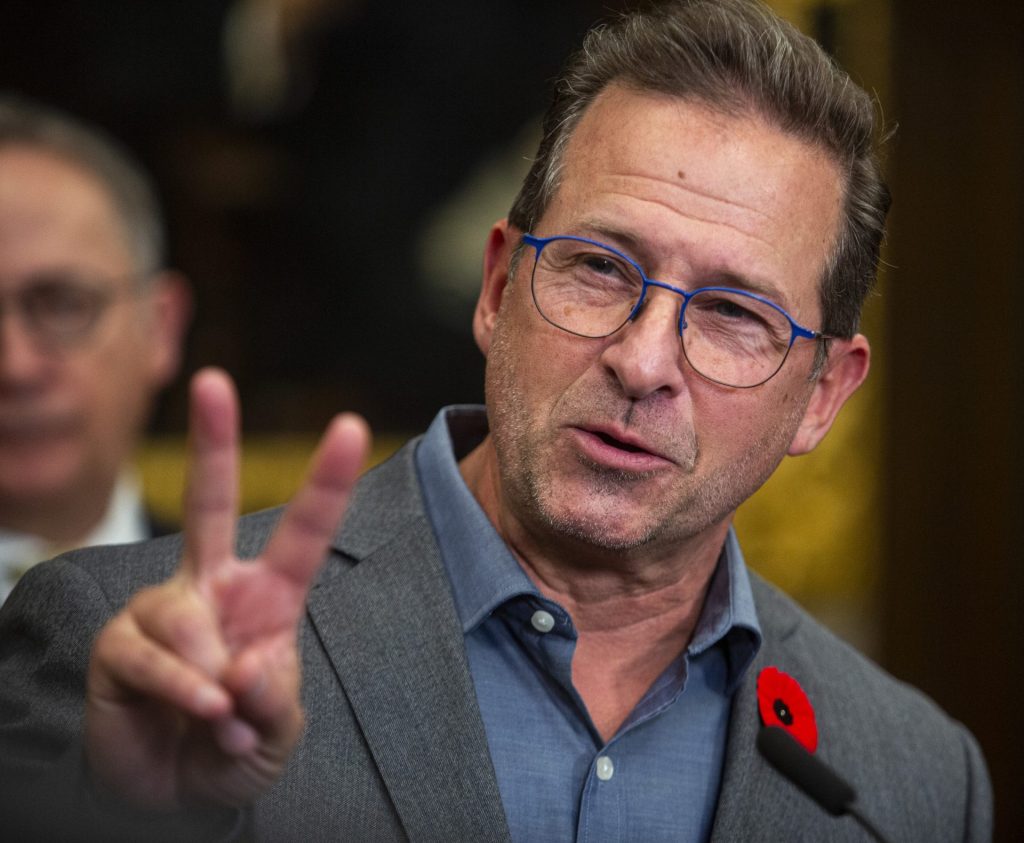
As for Blanchet’s riding of Beloeil–Chambly, the transposition shows the Bloc would have taken 53.53 per cent of the votes in the redrawn riding in 2021, with a commanding 30-point lead over the Liberals, which marks the largest winning margin among federal leaders.
“Something catastrophic would have to happen for him not to win his seat again,” Simpson said, a sentiment all pollsters agreed with.
Bernier likely to lose again, say pollsters
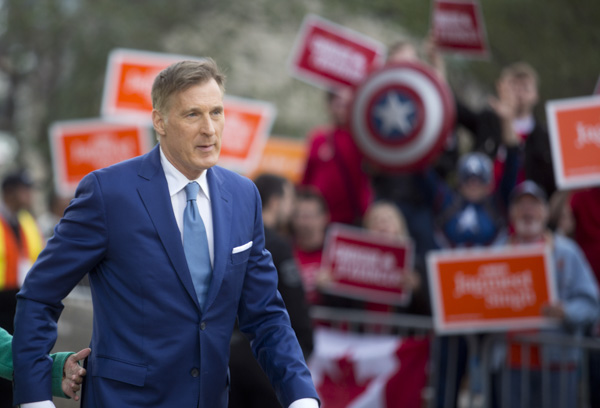
Simpson noted that it’s not a shoo-in that party leaders will be elected, and the margin of victory the last time out is a good indicator as to how things might turn out.
One example of that is Maxime Bernier, leader of the People’s Party, who lost in the Quebec riding Beauce in 2021—despite having won it four times previously when he was a Conservative MP. Pollsters say they don’t expect Bernier to win in Beauce this year, either.
Bernier lost this seat in 2019 after he split from the Conservatives. In 2021, Bernier’s PPC placed second with 18.19 per cent.
ikoca@hilltimes.com
The Hill Times






 LICENSING
LICENSING PODCAST
PODCAST ALERTS
ALERTS













